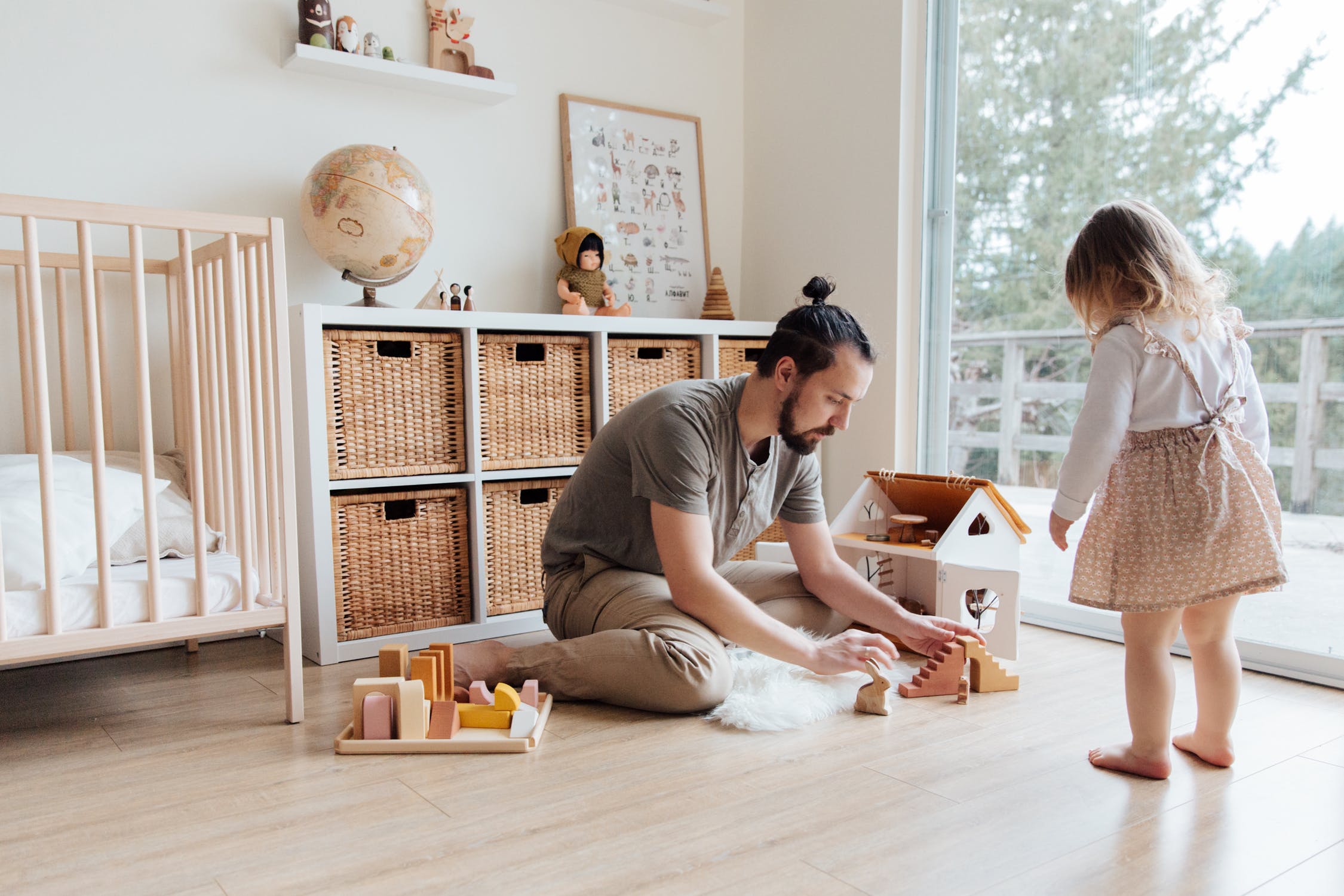
When we as moms and dads know ourselves, we can act on that knowledge. Being self-aware ultimately makes us better parents. And the Enneagram can help.
The Enneagram is a personality typology that focuses on motivations. While most personality assessments group people based on how they act, the Enneagram groups people based on why they act that way. So instead of discovering that you’re, let’s say, an extrovert, the Enneagram might identify that you’re an extrovert because you equate attention with love. Knowing and naming motivations is a powerful skill, and since this is what the Enneagram does best, it can be a beneficial tool in understanding ourselves and others. Checking our motivations before we react is where the growth toward being a better parent begins!
There are nine Enneagram types, which are denoted by numbers (1-9). Each type has a unique way of interacting with the world—and of parenting. Each type shines in certain areas and each type has a few areas that usually need work. Here is what your Enneagram type may say about your parenting style:
Type 1s embrace structure, which gives your kids a strong sense of security and responsibility. Just remember that it’s okay to break the rules in the name of fun sometimes. Be silly! Be spontaneous! (Even if you have to put it on the calendar.) And when it’s time to enforce the rules, be careful not to let your inner critic speak out loud to your children. Remember, they’re kids, not small adults.
Type 2s are empathetic and helpful parents, and your kids know that you love them and would do anything for them, mostly because you tell them so and do so constantly. However, remember that a major goal in parenting is to create independent adults, so it’s important to make your kids pitch in sometimes. (Yes, they may have to do their own laundry. And they can, they really can!) Sometimes letting kids struggle is what’s best for them.
Type 3s want the same things for your kids as you do for yourself—to feel accomplished and be successful—and are great role models for self-confidence and work ethic. But remember, your kid is not you. Be careful not to push your children into fulfilling your goals or your vision of their future. Too much pressure, particularly on a kid who isn’t as naturally driven as you are, can be exhausting and anxiety-inducing.
Type 4s value openness, creative expression, and freedom! Your kids will never fear being their true selves. But remember, it’s also okay for kids to want to conform at times. Part of growing up is finding your place within the larger group. And while fostering an honest environment is a positive thing, as the adult, hold back from sharing all of your emotions—lows in particular—which might overwhelm kids who are still trying to figure out their own emotions.
Type 5s love the inevitable one-million-kid-questions-a-day that come with parenting. The curiosity of young children fits perfectly with your love for researching, learning, and teaching. Remember, though, that kids aren’t just developing their IQs, but their EQs as well. (Both are important!) And while your kids’ developing emotions may cause you to want to withdraw, fight to stay present.
Type 6s are amazing at championing and fighting for your kids. They always know that you are in their corner, and that, with your sense of caution, they’re safe. Remember that while being supportive and protective are good things, kids also need to take risks—and get hurt sometimes too. Allow your kids to take chances (and don’t worry too much about the potential of scraped knees or failure).
Type 7s are the “fun parent,” and your kids will be greatly impacted by your optimism, enthusiasm, and spontaneity. However, life is a balance, which you need to model for your kids. Engaging in mundane tasks (like making lunches over and over . . . and over again) will help your kids gain a much needed sense of security. Kids need routine (as much as you loathe it), so challenge yourself to conform to your kids’ natural schedule.
Type 8s protect and challenge their kids, which makes for strong, courageous adults. You aren’t afraid to test your kids, to let them try and fail, which can be a great thing. However, though the world may be a rough-and-tumble place, your kids need to know that your home is not. Choose to turn down your volume, your tone, and your energy for the sake of connection. Be a “soft place to land” for your kid.
Type 9s have a peaceful attitude and accept people as-is, which allows your kids the freedom to be who they truly are. However, balancing acceptance and apathy can be tricky, so challenge yourself to stay engaged, even when it requires conflict with your kids. Doling out and following through on consequences may feel like it requires a lot, but in the end will help prepare your kids for the world outside your home.
Whatever your type, we all want to be better parents. We all respond differently, but we face similar parenting struggles. Once we identify our motivations, it’s easier to adjust our behavior. That might mean different things for each of us, but knowing ourselves is the perfect place to start in our efforts.




